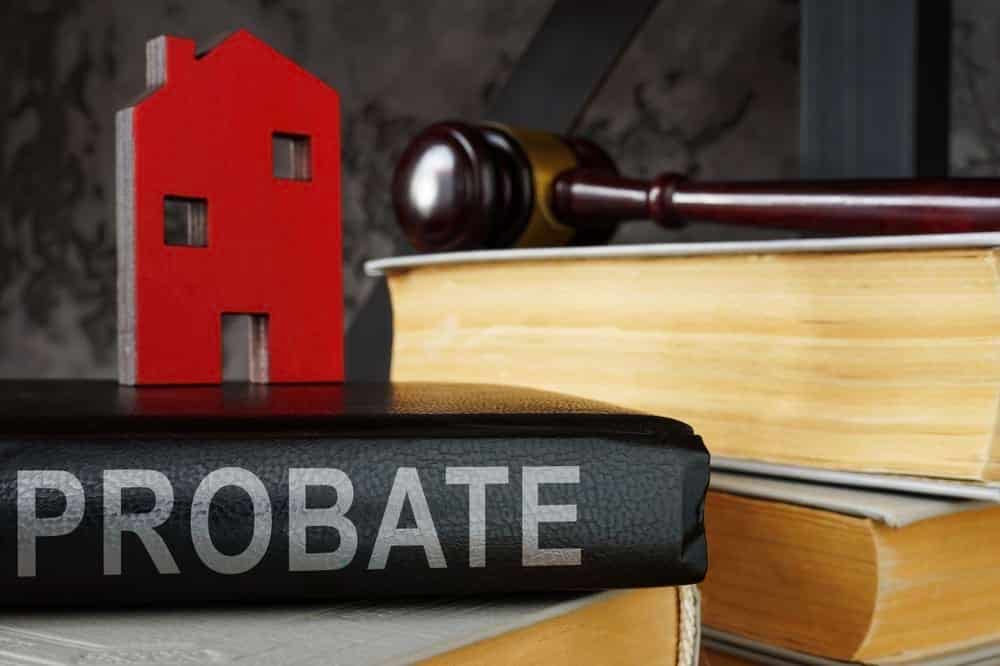The process of dealing with probate can be a complicated.
Tacking a probate application helps you understand its status.
Here, we’ll examine how to do this in detail.
We’ll also considering how long it takes and what happens when probate is granted.
What is a probate application?
A probate application is where you apply to deal with someone’s estate once they have passed away. The executor’s name can apply for probate if there is a will.
With no probate, the deceased’s closest living relative must apply. This is usually their spouse or children.
To start the application, you must either fill out an online or paper form with all the relevant details.
This includes:
- Valuing their estate (including a house valuation)
- Completing tax forms
- Registering the death.
Once you’ve sent the application, you’ll need to wait for it to be granted. After this, you can settle the estate according to the will or the law.
Can you track a probate application in the UK?
This depends on how you applied for probate. Traditionally, you just needed to wait for the courts to respond.
However, with the government’s MyHMCTS service, you can track your application.
Once you have completed the application, you can see the ‘Status’ next to your case.
You can then click into the case and see its ‘Event History’. This is where you can track its progress and find information related to the case.
For example, you may see the status as ‘Stopped’ if the case worker requires legal advice.
Common statuses include:
- ‘Awaiting documentation’
- ‘Examining’
- ‘Ready to issue’
- ‘Grant issued’.
Only those who applied for probate can access this information. Any other potential beneficiaries would need to wait until it has been granted.
Once it has, it will be searchable on the government’s website, and you can get a copy for a small fee.
How long does the probate application take?
The answer to this question can vary based on several factors.
On average, probate takes eight weeks. This is from application to being granted. But this timeframe can vary depending on the case’s complexity.
For example, if no inheritance tax is payable the situation will be straightforward.
By contrast, a complex case requiring extra documentation will take much longer.
Government guidance states that grant of probate arrives within 16 weeks.
Many people will get it much sooner, but it may take more than 16 weeks for others.
It’s important to note that the application period may not be the longest part of the process.
Before you apply, you must obtain documents and valuations and pay taxes. Once your application has been granted, dealing with the estate can take time.
What happens after probate has been granted?
Once probate is granted, it’s time to settle the estate.
This is simple if you only need to distribute bank account funds.
Bit it can be more complicated if you have assets such as property, stocks, or shares.
Settle taxes
The first step is settling any debts or taxes of the deceased.
This can be as little as settling an unpaid phone bill but can include credit card debt.
It’s a common myth that debts die with someone.
That only happens when they don’t have an estate and their partner isn’t liable.
When settling taxes can be more complicated
This stage can be more complicated if the person is self-employed or owns a business. You may need to complete a Self-Assessment, pay taxes, or apply for a tax refund.
Selling assets
Now, you’ll need to sell assets, which can be complex.
For example, if the deceased was a landlord, you need to deal with a tenant’s contract and rental income.
Calculating dividends and profits due can also be challenging. This applies if they have a business.
If there is income from the estate following the death, you must report it to HMRC. You might have to pay tax on it.
Follow the will
Once everything is paid, you can settle the estate according to the will.
With no will, there are strict rules on who the beneficiaries would be. You then prepare the final estate accounts, and the process will be completed.
Sell your property with We Buy Any Home
We Buy Any Home are chain-free cash house buyers who can purchase your probate property up-front and quickly, without hassle or stress. You are in the perfect place to sell your house fast.
Using our own funds, we will purchase your property at a set price, by a date of your choosing, and fully manage it from beginning to end.
Fill in our enquiry form below if you want a cash offer for your house.



















